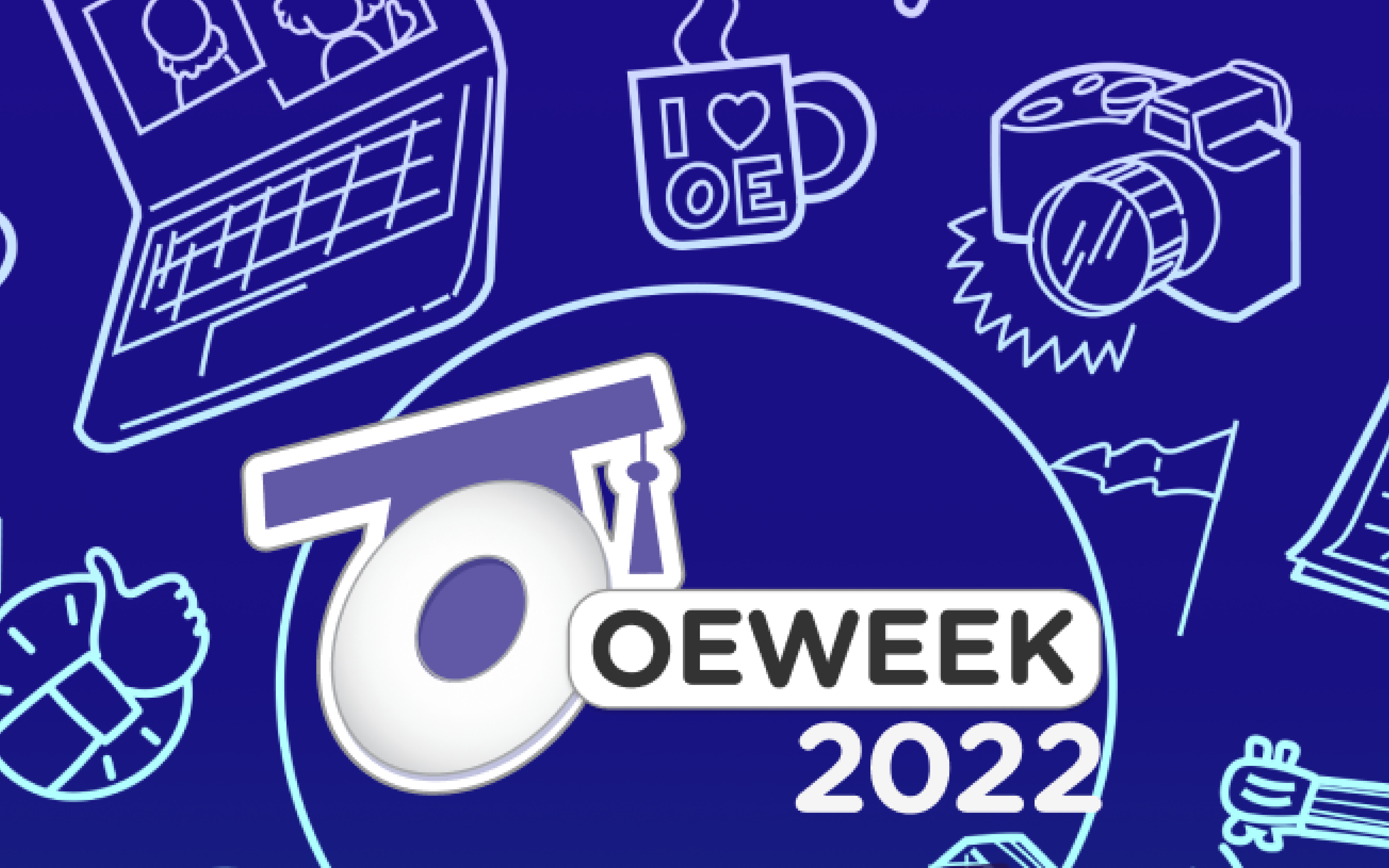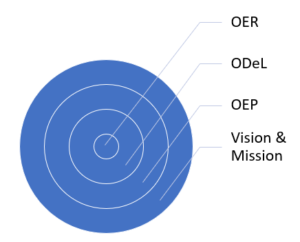
by Tony Mays
Education Specialist, Open Schooling
As we observe Education Week 2022, it seems useful to reflect on how our own beliefs about openness manifest in what we practice.
The philosophy of “openness” in education probably entered the mainstream discourse with the launch of the Open University in the UK and its mandated commitment to be open as to people (anybody can access learning opportunities), places (learning can be accessed from anywhere), methods (there is no one-size-fits-all approach but rather a need to provide flexible learning pathways, support mechanisms and mediating technologies for different contexts), and ideas (including a willingness to embrace innovation).
COL has been a champion of open education though its advocacy for open, distance and technology-based approaches since it was first established in 1987.
And my own portfolio focuses on the promotion and support of open schooling.
More recently, Tony Bates (2015) observes that the notion of open education may take several forms, and this diversity is reflected by multiple other role-players, for example:
- Open as in access for all — i.e., sustainable inclusive learning with universal and flexible access to quality school education and skills development (NIOS, 2012).
- Open as in connected and permeable (Sotiriou & Cherouvis, 2017).
- Open as in offering bespoke curricula (Open School BC Open School BC, n.d.).
- Open access publishing (Costello et al. , 2019).
- Open as in integrating other ways of knowing, such as indigenous knowledge (Adeyeye, 2019).
- Openness in which personal freedom ends only where others’ freedom to act begins ( Economides & Perifanou 2018, p. 3695).
If we embrace openness at the macro level of our individual or institutional vision and mission it is more likely to permeate down to the micro level of our everyday practice. If we share a vision of open education for all, we logically should be open also to sharing our own resources and expertise (open educational practices), making use of open, distance and e-learning (ODeL) methods and incorporating Open Educational Resources (OER) to open educational opportunities.
This can be modelled as follows:
This kind of thinking underpins work currently underway as part of a new initiative, the Pacific Partnership for Open, Distance and Flexible Learning (PPODFL).
The initiative recognises the challenge of providing educational opportunities in the Pacific with its widely diverse and distributed populations and frequent education provision disruptions due to tropical cyclones, tsunamis, droughts, volcanic activity and, of course, the recent pandemic. Open and Distance Learning (ODL) can help Pacific Island Countries reach learners at all levels of the education system who currently cannot be reached by traditional campus-based methods. However, we recognise that most teachers have not been trained to offer ODL and so need orientation, training, mentoring and ongoing support in the short term.
The PPODFL initiative started in November 2020 with support from the New Zealand Ministry of Foreign Affairs & Trade to enhance capacity and efficiency of education sectors in the Pacific through greater use of innovative delivery mechanisms and technology. COL works with the Pacific Centre for Flexible & Open Learning for Development (PACFOLD), hosted by the University of the South Pacific, to provide support for using ODFL at a regional scale.
To encourage engagement with OER as part of this initiative, COL has developed Guides for teachers on Reversioning OER and Integrating OER in Teaching .
These guides can be found, among other resources, in a Regional OER Collection . We are progressively working with national ministries to reconfigure the regional collection to match the national curricula. In a similar vein, a Pacific Regional Video on Demand (VOD) Channel has been developed to match existing video content to the national curricula.
To build capacity in use of OER and ODFL in the Pacific, we are progressively developing short courses in response to identified needs in the region. The first two of these short courses Digital Skills for OER Sharing and Communication Skills for ODFL each attracted more than 1,000 teachers from the Pacific in the first facilitated offerings. A key aspect of the design of these courses is that the course content can be accessed in whole or in part at any time by anybody, and re-versioned for different purposes or audiences. A new short course on Assessment for ODFL will be available from April 2022, while a new course on Learner Support for ODFL is currently in development.
We also recognise that for sustainability, we must develop local capacity to continue this work into the future. An example of this is the support COL provides to the growing Wisdom Community of Pasifika Teachers, an initiative of the Fiji National University.



